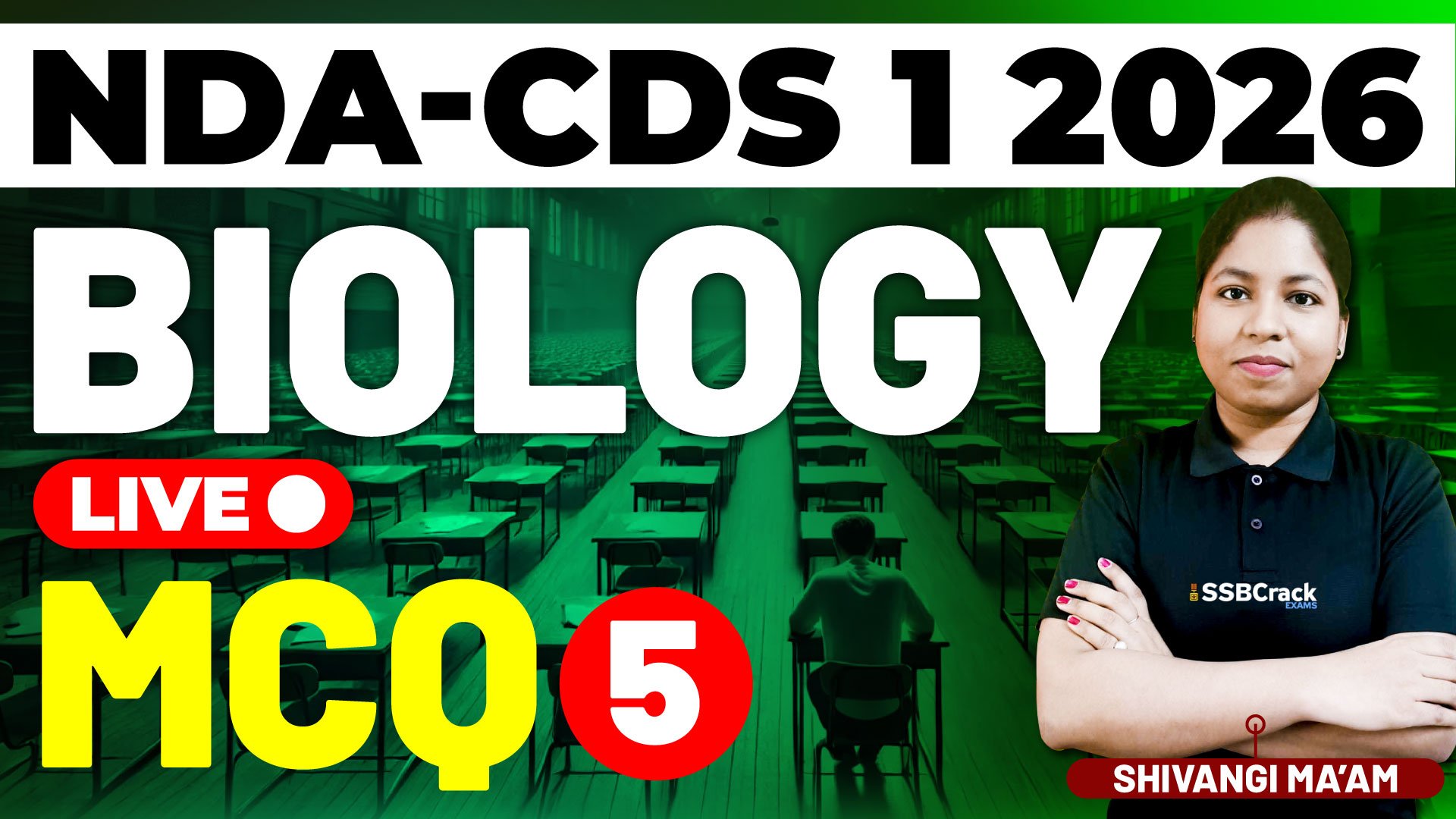The NDA (National Defence Academy) and CDS (Combined Defence Services) Examinations, conducted by the Union Public Service Commission (UPSC), are prestigious national-level exams for entry into the Indian Armed Forces. The General Science section, which includes Biology, forms a vital part of the GAT (General Ability Test) paper.
Understanding basic biological concepts, especially Plant Physiology and Ecology, is essential, as these topics frequently appear in the exam’s MCQ section. This class (Class 4) focuses on key concepts, important processes, and previous-year question trends to strengthen your fundamentals and enhance accuracy in solving objective-type questions.
Subtopics Covered
1. Plant Physiology
This section deals with the functional aspects of plants — how they grow, respire, and adapt to their environment.
Key areas include:
- Photosynthesis: Light and dark reactions, factors affecting photosynthesis, importance of chlorophyll.
- Respiration in Plants: Types of respiration (aerobic and anaerobic), glycolysis, Krebs cycle, energy yield.
- Plant Growth and Hormones: Types of growth, role of auxins, gibberellins, cytokinins, ethylene, and abscisic acid.
- Transportation in Plants: Xylem and phloem, transpiration, absorption of water and minerals, cohesion-tension theory.
- Transpiration and Guttation: Definition, significance, and differences.
- Nitrogen Metabolism: Nitrogen fixation, nitrification, and importance of nitrogen in plant nutrition.
2. Ecology
This section helps understand how living organisms interact with one another and with their environment — a vital concept for environmental awareness.
Key areas include:
- Ecosystem: Structure and components (biotic & abiotic), energy flow, food chains and food webs, trophic levels.
- Ecological Pyramids: Types and significance.
- Biogeochemical Cycles: Carbon, nitrogen, and water cycles.
- Population and Community Ecology: Population growth, carrying capacity, interspecific relationships (symbiosis, parasitism, competition).
- Environmental Conservation: Forest conservation, pollution control, biodiversity importance.
- Ecological Balance and Human Impact: Deforestation, climate change, and sustainable development.
MCQ Practice Focus
- Based on previous year NDA/CDS papers and NCERT-based conceptual questions.
- Emphasis on concept clarity and elimination techniques for objective questions.
- Quick revision of important facts, processes, and definitions relevant to the exam.
Conclusion
This session aims to solidify your understanding of Plant Physiology and Ecology, two crucial pillars of Biology for the NDA/CDS syllabus. By mastering these concepts through focused MCQs and conceptual discussions, you’ll enhance your speed, accuracy, and confidence in tackling biology questions in the upcoming NDA/CDS 1 2026 Examination.
Regular revision and practice of these topics will not only help in your written test but also broaden your scientific understanding — a key quality for future officers in the Armed Forces.

















